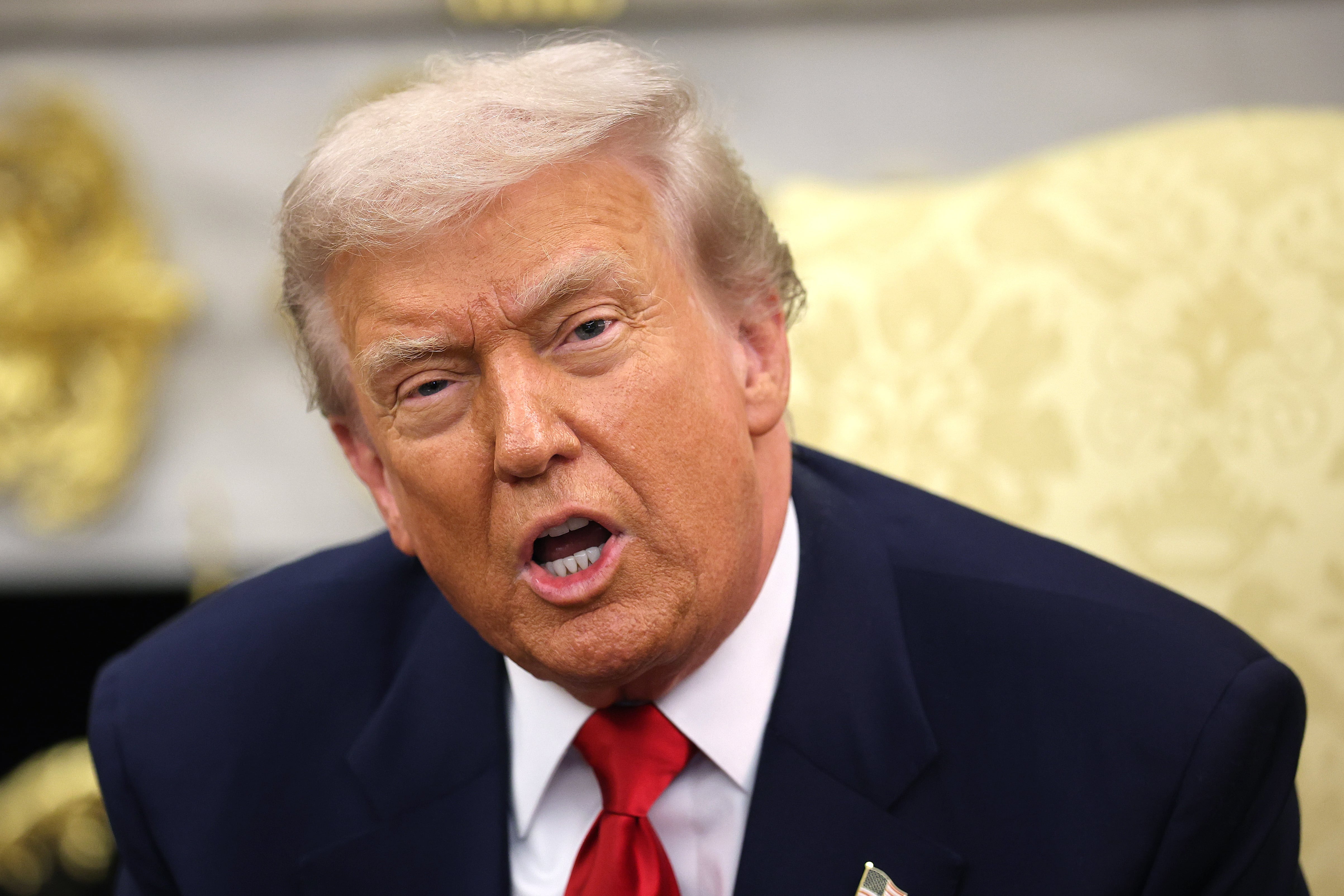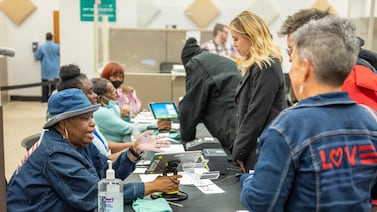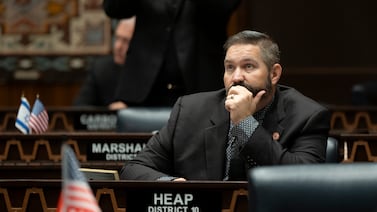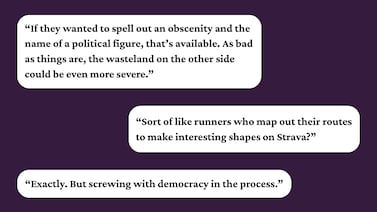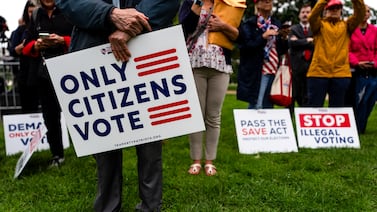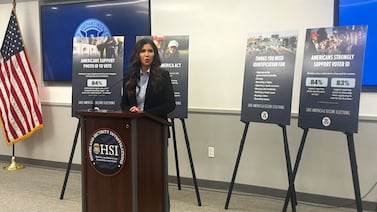Votebeat is a nonprofit news organization reporting on voting access and election administration across the U.S. Sign up for our free weekly newsletter to get the latest.
UPDATE Dec. 1: On Friday, federal prosecutors responded to the motion, arguing the president’s pardon did not apply to Laiss’ case and urging the judge to dismiss his motion. This story has been updated with information from that filing.
A man charged with voting twice in the 2020 election has adopted a novel legal argument: that he’s covered by the pardon that President Donald Trump granted to allies who attempted to reverse his 2020 election loss.
Federal prosecutors charged Matthew Laiss in September with double voting in the November 2020 election. The U.S. attorney for the Eastern District of Pennsylvania alleged that Laiss moved from Pennsylvania to Florida in August of that year and voted both in person in Florida and via mail ballot in Bucks County. Both votes were allegedly for Trump.
Early this month, Trump issued a pardon to 77 people, including members of his legal team and the so-called fake electors, for their conduct in connection with the 2020 election. However, the pardon proclamation was written broadly, saying in part that Trump was granting “a full, complete, and unconditional pardon to all United States citizens” for conduct related to the 2020 election.
Laiss’ attorney argued in a motion to dismiss filed last week that the “plain language” of the pardon meant it extended to Laiss.
Beyond that, the motion cited “the unequivocal absurdity of the notion that individuals like John Eastman, Rudolph Giuliani, Mark Meadows, and Sidney Powell … are explicitly pardoned for their exponentially more egregious alleged conduct, while a then-26-year-old man who cast two votes for President Trump in the general election is not.”
“To read the Pardon Proclamation to intend such an outcome would be outrageous, particularly in light of its sweeping language,” Laiss’ attorney argued.
A spokesperson for the U.S. attorney declined to comment. The White House Press office did not respond to a request for comment.
In a Nov. 28 filing, prosecutors urged the judge to dismiss the motion, arguing the pardon was not intended to apply to Laiss. It said it had consulted with the Office of the Pardon Attorney and could “explicitly confirm” that “in the view of the executive branch, Laiss is not covered by President Trump’s November 7 pardon proclamation.”
One of the arguments the U.S. attorney’s office made was that the pardon was targeted at activity that occurred after Election Day, whereas Laiss’ alleged crime occurred on or before Election Day.
Legal scholars warned when Trump issued the pardon that the broad language could have unintended consequences for the administration.
Justin Levitt, a professor at Loyola Law School in California and a former Justice Department official, said he wasn’t surprised to see a defendant making this argument.
The pardon was so broad and poorly written, Levitt argued, that it could conceivably apply not just to the allies Trump intended to pardon, but also to people accused of voting illegally in 2020, like Laiss, and to election officials Trump has implied should face prosecution for “cheating.”
The caveat is that the pardon applies only to federal crimes, and election-related crimes are generally prosecuted at the state or local level.
There are other federal cases that may be covered by the pardon. Earlier this year, a Montgomery County, Pennsylvania, man pleaded guilty to multiple counts of election law offenses, one of which occurred during the 2020 election.
Derek Muller, an election law professor at Notre Dame Law School who first noted Laiss’ motion on the Election Law Blog, said it makes sense that Trump issued a broadly worded pardon, given that his allies’ conduct in 2020 and early 2021 spanned a long time frame, crossed multiple states, and involved many individuals. Typically, pardons are tailored to specific people or circumstances.
Even when former President Joe Biden issued broadly worded pardons to his son and members of Congress who served on the committee that investigated the Jan. 6, 2021, attack on the U.S. Capitol, Muller said, he narrowly tailored the pardons to specific people.
Trump’s pardon “does name individuals, but it does speak to anyone, and it also speaks to a wide range of conduct,” Muller said. “It’s a little sloppier language. With that broad of language, it allows for unintended consequences.”
The U.S. attorney’s office has until Friday to respond to the motion. Ultimately, it will be up to the judge in the case to decide if the pardon applies, Muller said.
Correction, Nov. 25: A previous version of this story misstated the other cases this pardon may apply to. It only applies to citizens, not noncitizens.
Carter Walker is a reporter for Votebeat in partnership with Spotlight PA. Contact Carter at cwalker@votebeat.org.

